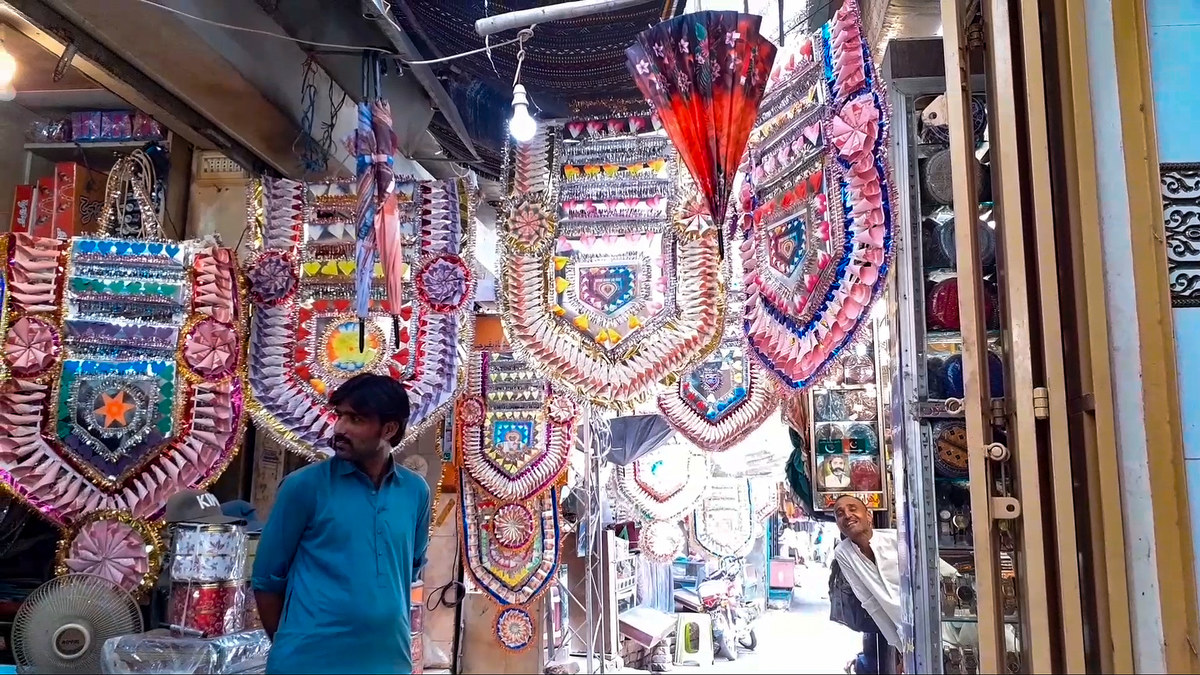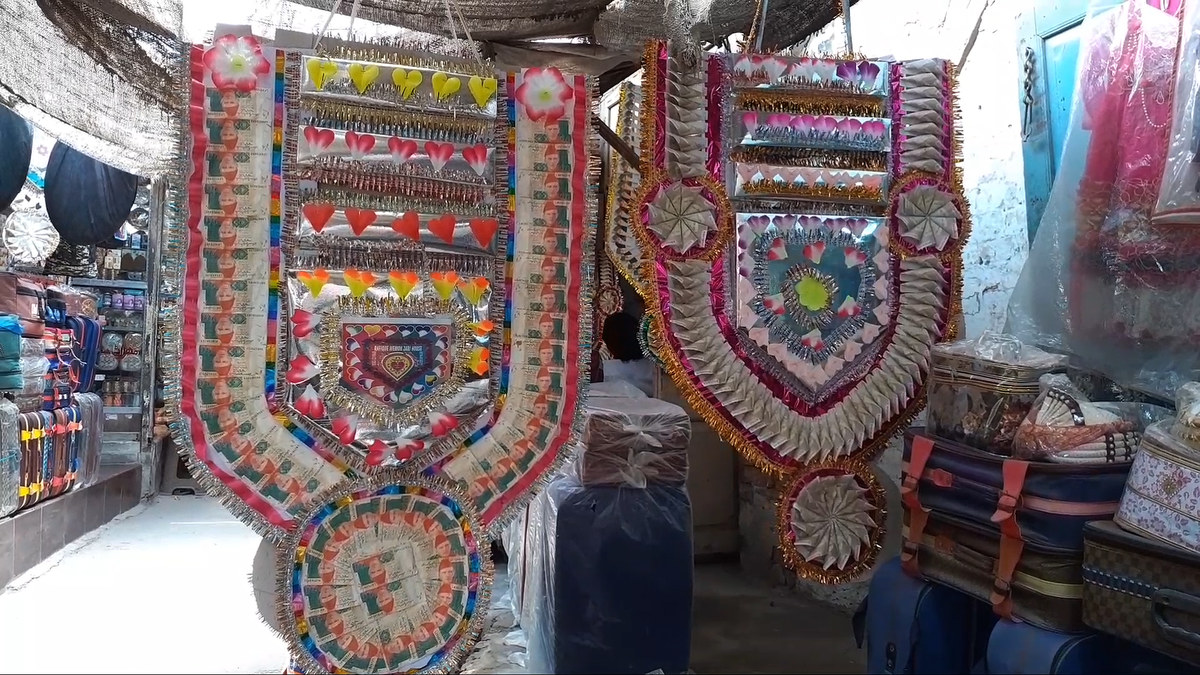UMERKOT: Gordhan Das carefully folded 50-rupee banknotes into different shapes and then pasted them onto a large cardboard frame at his shop in the southern Pakistani district of Umerkot.
Das, 50, is one among around 30 shop owners in Umerkot’s famed Shahi Bazar who sell garlands made of real money, commonly gifted on weddings, birthdays, political events and festivals, or offered to honor individuals or deities on social and religious occasions in a district where 50 percent of the population is Hindu.
Not too many years ago, there were over 50 such businesses in the area but today, the money garland industry has been reduced to almost half its size due to record inflation, the availability of cheaper alternatives and new trends and tastes.
“I am 50 years old and we have been doing this for the past 30 years. This market is more than 100 years old, and this [garlands’] work has been going on for many years,” Das told Arab News at his shop, lamenting the reduction in business.

In this photo taken on June 20, 2023, a man gestures outside his money garland shop looking for customers in Umerkot, southern Pakistan. (AN Photo)
“There is inflation so people are not buying money garlands anymore.”
Das explained that a garland made of Rs20 notes could cost up to Rs3,000, while those made of Rs50 notes could go up to Rs5,000 and Rs100 notes to Rs10,000.
“The artificial and flower garlands are cheaply available, from Rs200 to Rs300,” Das said, “So, these garlands of currency notes are sold less now.”
Many brides and grooms, Das said, preferred garlands made of real or artificial flowers, he added.
“Now artificial [flower garlands] are in fashion and it is the age of Facebook, and these flower ones look good in selfies. So that’s why they are selling more,” Das said.
Sunil Kumar, 29, who has run his father’s shop at the Shahi Bazar for the last 10 years, said money garlands were “a little bit heavy and big in size” and thus not preferred by some people, especially in urban areas:
“But villagers still use these garlands in the same way.”

In this photo taken on June 20, 2023, money garlands are seen hanging at a shop in Umerkot, southern Pakistan. (AN Photo)
As money garland shops close down due to lack of demand and less designs are available, many repair and reuse old garlands.
Amin Soomro, 55, said he had received a garland at his son’s wedding and now wanted to get it repaired and gift it to a relative on his wedding.
“These currency note garlands are still used in far-flung areas, but in this modern era, many sensible people have moved away from this tradition, only because it costs more and there is a shortage of currency notes in the market too,” Soomro told Arab News. “The cash is not available.”
“So, right now, used garlands come back to the market and we take them back after getting them repaired … we take care of them because not everyone can afford a new garland because it keeps getting quite expensive.”
















